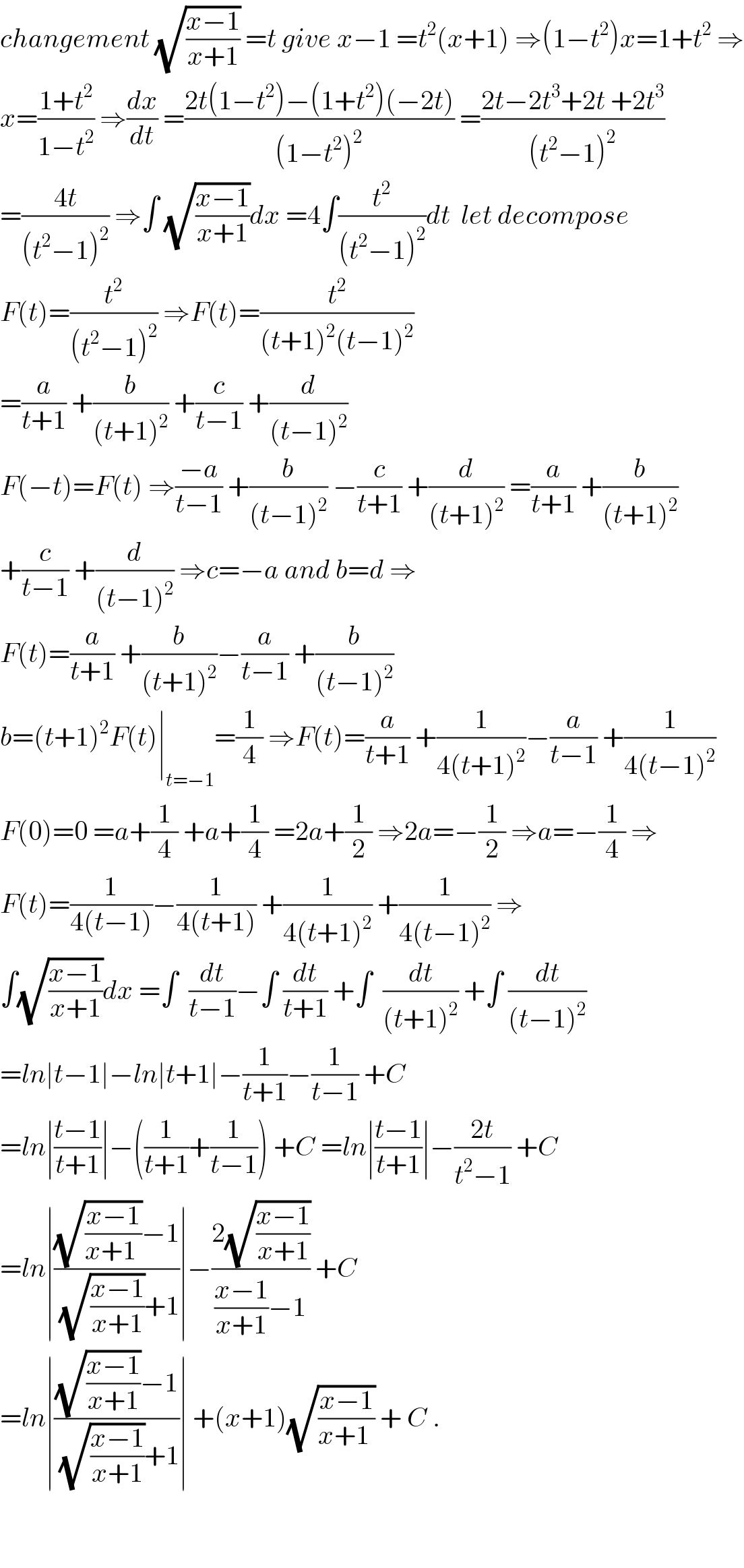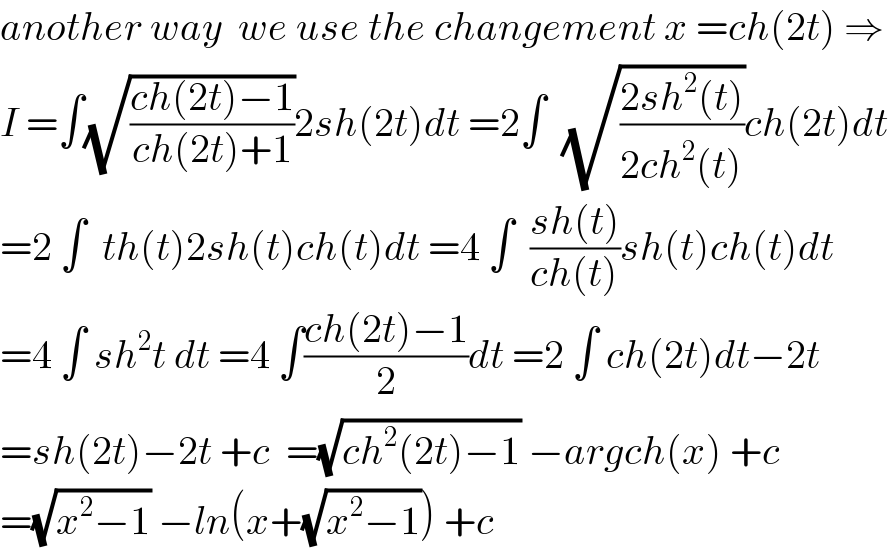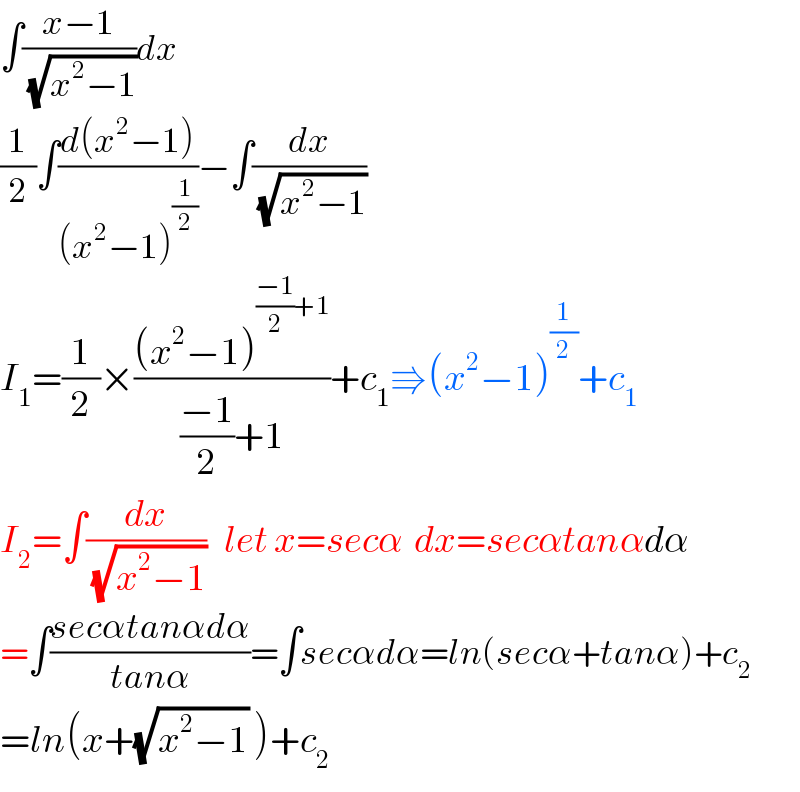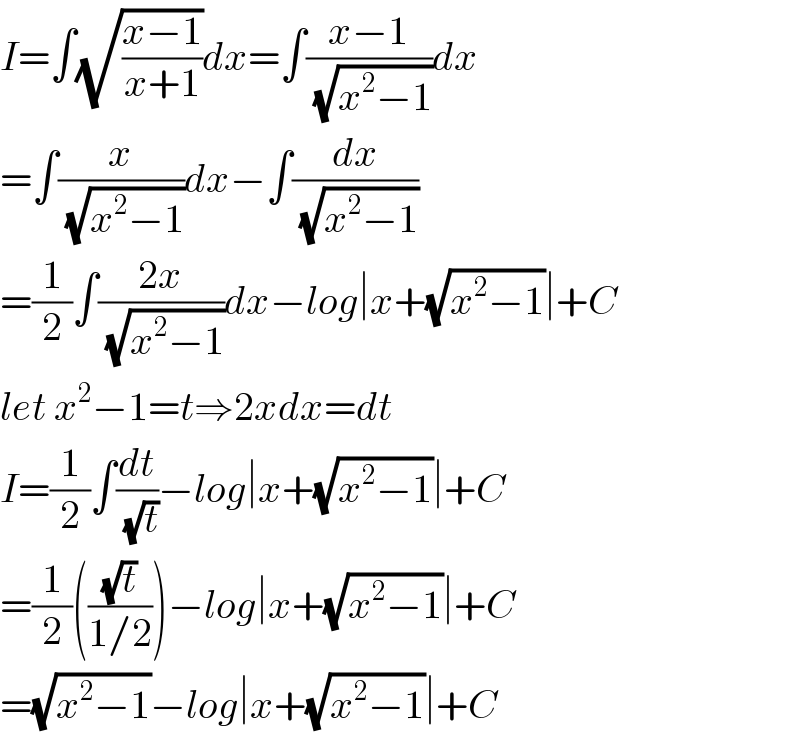
Question and Answers Forum
Question Number 74720 by chess1 last updated on 29/Nov/19

Commented by mathmax by abdo last updated on 29/Nov/19

Commented by mathmax by abdo last updated on 29/Nov/19

Commented by chess1 last updated on 30/Nov/19

Commented by mathmax by abdo last updated on 30/Nov/19

Commented by mathmax by abdo last updated on 06/Dec/19

Answered by Tanmay chaudhury last updated on 29/Nov/19

Commented by chess1 last updated on 30/Nov/19

Answered by Kunal12588 last updated on 30/Nov/19

